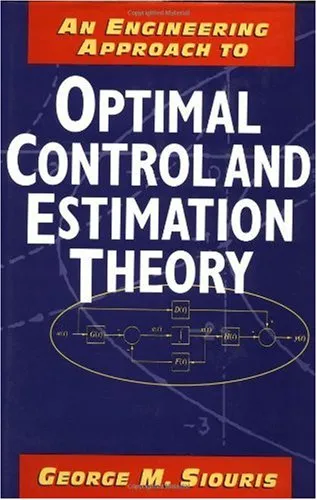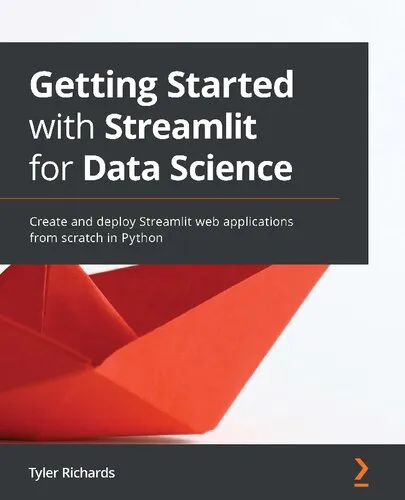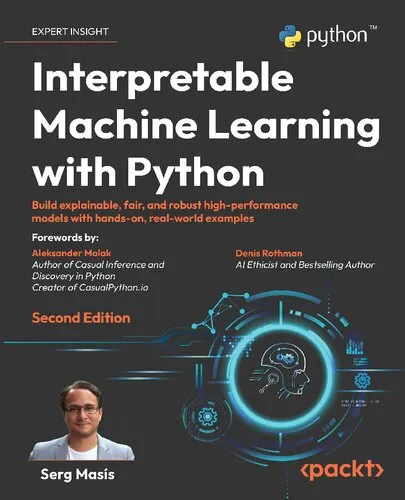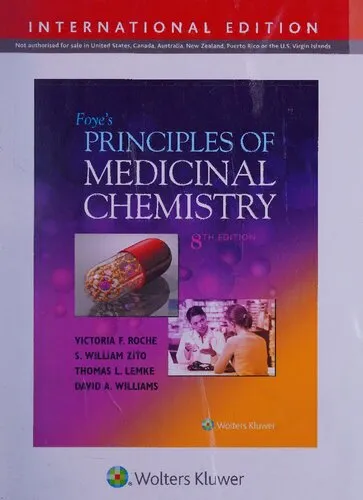An Engineering Approach to Optimal Control and Estimation Theory
4.2
Reviews from our users

You Can Ask your questions from this book's AI after Login
Each download or ask from book AI costs 2 points. To earn more free points, please visit the Points Guide Page and complete some valuable actions.Related Refrences:
Introduction to "An Engineering Approach to Optimal Control and Estimation Theory"
"An Engineering Approach to Optimal Control and Estimation Theory" by George M. Siouris is a comprehensive and meticulously crafted guide designed for professionals, students, and researchers in the fields of engineering, mathematics, and applied sciences. This book bridges the gap between complex mathematical theories and their realistic engineering applications, presenting advanced concepts in optimal control and estimation in a highly accessible and practical manner.
If you've ever been fascinated by how dynamic systems are modeled, controlled, and optimized to perform sophisticated tasks under uncertainty, this book serves as an invaluable resource. It emphasizes clear explanations, practical methods, and real-world applications to allow readers to grasp challenging topics in control and estimation theory effectively.
Detailed Summary of the Book
The book explores the fundamental principles of optimal control and estimation theory, providing an engineering-focused perspective. It begins with foundational topics such as system modeling, dynamic equations, and the mathematical framework of linear systems. These concepts build the groundwork for understanding advanced topics such as linear quadratic regulators, Kalman filtering, and stochastic control.
Key highlights include the derivation of optimal control laws in both deterministic and stochastic settings. Readers are guided step-by-step through the principles of formulating control problems and solving them mathematically. The book also delves into state estimation, focusing on integration techniques like the Kalman filter, extended Kalman filter (EKF), and their applications in real-world systems such as navigation and process control.
Special emphasis is placed on the intuitive understanding of complex equations, ensuring that both seasoned engineers and newcomers find the content engaging and applicable. The book includes a blend of theoretical discussions, practical implementation strategies, and numerical examples, making it ideal for independent study or as part of a structured course in control engineering.
Key Takeaways
- A rigorous understanding of optimal control, including the optimality principles and variational calculus used in deriving control solutions.
- Comprehensive coverage of estimation techniques, particularly the Kalman filter and its applications in engineering systems.
- Practical insight into how mathematical theories are applied to real-world problems like missile guidance, trajectory tracking, and decision-making under uncertainty.
- A solid mathematical foundation for graduate-level and professional coursework in control and estimation theory.
- Step-by-step examples and exercises designed to foster a deeper understanding of both theoretical and applied concepts.
Famous Quotes from the Book
"Optimal control is not merely an academic exercise; it is the mathematical foundation underlying many of today's technological innovations."
"Estimation techniques like the Kalman filter are examples of how mathematics translates uncertainty into actionable insights."
"Engineers must learn not only how to solve the equations governing a system but also how to interpret and apply these solutions effectively."
Why This Book Matters
In today’s rapidly advancing technological landscape, the ability to precisely control and estimate the behavior of dynamic systems is indispensable. Whether it's in aerospace, robotics, telecommunications, or process control, the impact of optimal control and estimation theory is far-reaching. This book empowers readers with the skills needed to contribute to these fields, whether through research, innovation, or professional practice.
The unique engineering-oriented approach taken by George M. Siouris makes this book stand out from other theoretical texts on the subject. By focusing on practical relevance, clarity, and intuitive understanding, the author ensures that the material is not just theoretical but applicable and useful for solving real-world problems.
The knowledge gained from this book can directly benefit engineers, scientists, and decision-makers who deploy systems in uncertain and dynamic environments. It not only prepares readers to model systems but also to optimize and predict their behavior, enhancing productivity and innovation across various industries.
Free Direct Download
You Can Download this book after Login
Accessing books through legal platforms and public libraries not only supports the rights of authors and publishers but also contributes to the sustainability of reading culture. Before downloading, please take a moment to consider these options.
Find this book on other platforms:
WorldCat helps you find books in libraries worldwide.
See ratings, reviews, and discussions on Goodreads.
Find and buy rare or used books on AbeBooks.
1108
بازدید4.2
امتیاز0
نظر98%
رضایتReviews:
4.2
Based on 0 users review
Questions & Answers
Ask questions about this book or help others by answering
No questions yet. Be the first to ask!





![The Ultimate iOS Interview Playbook: Conquer Swift, frameworks, design patterns, and app architecture [Team-IRA]](https://s3.refhub.ir/images/thumb/The_Ultimate_iOS_Interview_Playbook__Conquer__29925.webp)







